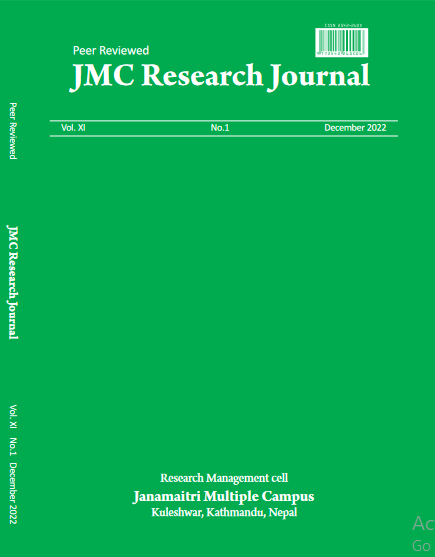Changing Family Roles for Senior Citizen Wellbeing: Implications for Support and Interventions
DOI:
https://doi.org/10.3126/jmcrj.v11i1.59259Keywords:
Senior citizens, family Support, policy, elderly, wellbeingAbstract
The process of aging is an inevitable reality of human life, resulting in physical, psychological, and social changes that vary across environments, cultures, societies, and time. The period nearing the life expectancy of the human life cycle is known as old age, and individuals belonging to this stage are also referred to as senior citizens or the elderly. This article is based on the assumption that family support plays a crucial role in the well-being of senior citizens. The rationale behind this paper is to raise awareness about the challenges faced by senior citizens and to encourage individuals, families, and societies to address these issues through compassion, empathy, and social responsibility. It examines the evolving perspective of caring for senior citizens from various angles, including family support, migration, health, care, economy, roles, and responsibilities. Furthermore, it examines the challenges faced by senior citizens in today's society, where efficiency, strength, speed, and physical attractiveness are highly valued. The paper explores the concept and challenges of senior citizenship within different societal norms.

